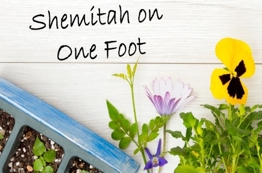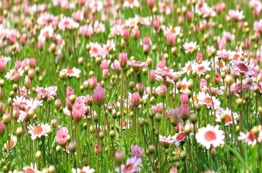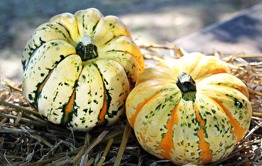Adar II Shemitah Update

💡Monthly scoop: Lemons on trees in home gardens possibly began to grow during shemitah. They should be handled as having kedushah owing to doubt (if you did not mark them before): handle them as having kedushah and take terumot and ma'aserot without a blessing. If you are not sure about your dwarf lemons and kumquats, do the same for both.
🌱 Garden work
✂️ Most pruning is forbidden during shemitah.
🌳 It is forbidden to remove branches with fruit that began to develop during shemitah until the fruit ripens.
🐜 Pest control if permitted only if there is a concern for significant damage. Halachically, it is preferable to apply pesticides to irrigation water.
🌾 Weeds that can be dangerous (cover for snakes, fire) or that mar the garden's appearance can be sprayed or mowed.
Fruit
This month the following fruits may already have kedushat shevi'it: peach, loquat, nectarine, and even early table grapes. These fruits are in addition to the fruits that already have kedushat shevi'it: blueberries, pitaya, passionfruit, prickly pear (sabra, certain varieties), dragonfruit, and Peruvian apple cactus.
This is true for fruits available in stores and also in home gardens.
Vegetables
All vegetables in the market today probably belong to the shemitah year, including . Furthermore, nearly all vegetables at this point of the year may be sefichin (exceptions include: sweet potato, pumpkin, horseradish.) For this reason it is important to buy vegetables in places with kashrut certification only.
Legumes
Most legumes are generally not grown in Israel on a commercial level: rice, lentils, dried beans, soy beans, so shemitah issues are not relevant.
Flowers
At this point of the year, a significant portion of the flowers sold in the marketplace were planted during the shemitah year. For this reason, it is important to buy flowers only from vendors with kashrut certification.
For perennial flowers, there is less reason for concern; for these flowers there is room to be lenient and buy them even without supervision.
To the best of our knowledge, the following vendors have kashrut supervision:
Otzar Ha'aretz flowers - sold at Otzar Ha'aretz stores at the end of the week.
Zer4u - Supervision of the Lev HaSharon rabbinate through heter mechirah.
Teva Vaferach flower store - certification of Rabbi Efrati.
There are also other stores with Rabbi Efrati's certification all over the country. Only flowers marked with a hologram of Rabbi Efrati's certification are supervised.
Important: There are flower vendors without kashrut certification that present heter mechirah certificates that they received from flower growers. This does not guarantee that all of the flowers at their stand were purchased from these growers.




